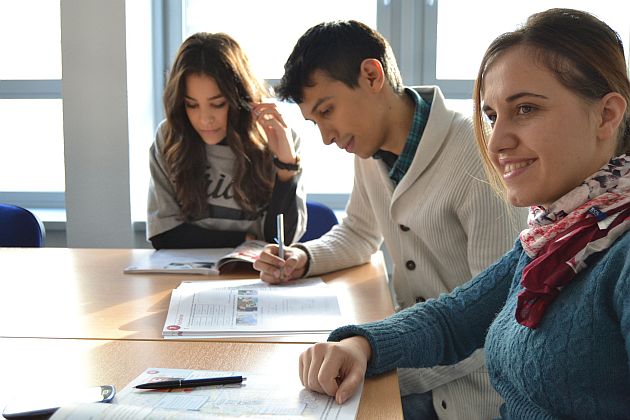I am very experienced in proofreading PhD theses and master’s dissertations. I’ve been working on them since 2009. Most years, at least 50% of my student clients speak English as a second (ESL) or third language. I am therefore familiar with many of the types of language issues that can crop up.
I mainly work with students who are living and studying in Europe. I can also work with students who are living and studying in other parts of the world, though. I can accept payment direct from students or from their university/academic institute. I’m a registered supplier at a few UK universities. I frequently invoice European universities, and the payment process is usually very straightforward.
Most of my work has been in humanities subjects and social science subjects. I’ve worked on theses on subjects such as English literature, history, philosophy, ethnology, gender studies, international relations, migration studies, political science, social anthropology, social geography, sociology, sociology of education, and sociology of health and illness.
I have also proofread theses in other areas, though. Some examples are business, cancer treatment, creative writing, design history and theory, disaster risk management, human resource management, intersex characters in films, linguistics, logistics management, management and further education, music technology, nursing, physiotherapy, psychology, social work, sustainable tourism, theology, and war studies.
I have a legal background, so I am comfortable with much law-related content. I am especially interested in English literature and history (both of these were my degree subjects).
In addition to doing student proofreading, I work on a wide range of subjects for individual lecturers, professors and researchers. You can find some of the publications I’ve worked on here: Portfolio. They have included (not an exhaustive list) abortion law, ADHD, AI and healthcare, architecture, artificial intelligence, business and marketing, caste in India, climate change, cyber bullying, digital media, digital news, digital support for excluded citizens, disaster risk management, disinformation and fake news, ecommerce, education, environmental anthropology, gender and work, health promotion, health and rehabilitation, higher education, information communication, information systems, intermedial studies, media transformation, medical software, migration, misinformation, museum studies, music composition, music technology, nursing and physiotherapy, palliative care nursing, psychotherapy, public policy, representations of Muslims in the media, responsible innovation, self-harm, traditional religions in Kenya, typography, violence and the production of space, virtual real estate and the metaverse, and women film directors. So if your subject area isn’t listed here, I’d probably still be able to help you. If you get in touch I can let you know.

Some universities have rules about employing a professional proofreader to do postgraduate student proofreading. They should include guidelines confirming what a proofreader is allowed to do and what they cannot do.
Many universities do not have such rules, but I will always ask you to clarify the position. This means we can both be sure that you are not breaking any rules by asking me to work on a text for you. I can also be confident that I’m not contravening any professional conduct rules. You will also be clear about what I am allowed to do (e.g. amend spelling) and what I’m not allowed to do (e.g. rewrite a paragraph to improve an argument).
Proofreading includes the following core work (subject to any university guidelines)
- checking for problems with spelling, grammar and punctuation and suggesting solutions
- ensuring that the text follows the conventions of grammar and syntax used in written British/US English. This can include rewording parts of a sentence or a whole sentence using tracked changes
- commenting where the meaning of the text is very unclear and/or confusing. The comments will say things like ‘Do you mean ‘xyz’?’
- identifying a word that does not seem to fit with your intended meaning and suggesting alternatives
- checking consistency in terms of spelling (e.g. hyphenation), punctuation, capitalisation and other aspects of style. This includes things like using either double or single quote marks and using abbreviations such as e.g., etc. and i.e. consistently. I will use track changes where only minor changes are needed. Where I think larger-scale changes are needed, I will include a suggestion in a comment. If you’re not sure about how to achieve consistency of style, take a look at my blog post about this, and it should help you
- checking headings: is the numbering sequential? Is the hierarchy logical? Is each level of heading consistent in terms of font type, size and treatment (e.g. bold, italic, etc.)? I will make comments regarding any inconsistencies
- proofreading tables and figures; checking whether numbering is sequential and whether there is consistency in terms of font type and capitalisation and making notes regarding any inconsistency
Student proofreading work can also include the following if needed (subject to university guidelines)
- suggesting ways of shortening very long sentences that are difficult to read
- improving the clarity and amending the grammar, spelling and punctuation of any text in or under tables or figures or making comments about this
- where we have agreed I am proofreading the in-text citations, I will correct errors in the punctuation and/or format of in-text citations where these are very minor. However, if there are a lot of errors or if there has been no formatting or very little formatting of the citations to comply with the required style, I will simply explain what the issues are so that you can make amendments yourself
- noting any problems with punctuation or grammar in quotations in case these are your typing mistakes. (Of course, any errors in the original quotation ought to remain, with or without an indication by you explaining that the error is not yours)
- checking translations/transcriptions of any interviewees’ words for any obvious typing errors or punctuation that is problematic. Usually, these words should be left alone to reflect exactly what was said and how it was said. This is a sensitive area. It would be up to you to check whether or not my suggestions reflect what was said, how it was said and any nuances you feel need showing/emphasising. Unconventional or non-standard grammar, for example, that has been made by the interviewee should be left untouched as long as the text is understandable
- [please note that any work on a bibliography/reference list will be quote for separately] carrying out a basic check of a bibliography/reference list that has already been formatted by you to ensure that it complies with the required style (e.g. Harvard) and correcting spelling and punctuation errors. If the bibliography/reference list requires more than minor correction, I will make notes for you so that you can correct the list yourself, because if I make more than minor changes this will probably contravene rules relating to students compiling their own bibliography
A few other things to note
My terms and conditions say that you must check each insertion and deletion made by me before rejecting or accepting the change and that each suggestion made by me should be read and carefully considered before it is implemented. Final responsibility for the text rests with you.
In addition, please note that that if, after I have completed the work, you ask me to proofread any parts of the text that you have rewritten, I will make an additional charge for this. I will ask you to send the entire text back with the relevant parts amended by you using Track Changes and highlighted.
The following are excluded from the proofreading work:
- any changes to content, including clarifying arguments, changing how the development of ideas is organised, restructuring or removing content
- copy-editing
- changing passive terms into active ones
- making changes to tense where it is used inconsistently very frequently; I will, however, make notes about what the problem is and will highlight several instances of inconsistent use to illustrate my point. If you’re unsure about which tense to use for what, take a look at my blog post about this – it might help you to get the tense consistent
- reducing the length of the thesis
- checking or correcting any factual information within the thesis
- checking layout and formatting or carrying out any work relating to layout and formatting
- compiling or formatting a bibliography/reference list from scratch
- checking that all items in the bibliography are referred to in the text and vice versa
- cross-checking, e.g. references to pages or sections
- indexing
- identifying legal issues such as plagiarism or breach of copyright, libel, obscenity, incitement to racial hatred
Your responsibilities
You will need to check whether your academic institution allows you to employ a professional proofreader. I will also ask you whether your supervisors support you in doing so.
If proofreading is permitted, there may be rules that you need to comply with. These could include things like advising your university, filling out a form, or acknowledging the help you’ve received in a formal statement. It’s essential that you abide by any relevant rules. If you don’t, there might be very serious consequences for you, e.g. failing a course. I would also need to see any rules or guidelines before we come to an agreement so that I can comply with them. I would also need to see in advance any statement that I need to sign.
Proofreading for students whose work is going to be assessed doesn’t include any copy-editing work unless explicit permission is obtained from your supervisor and/or university and confirmed to me in writing. We can then agree the extent of such work. Many European universities allow this and some UK universities do too.
If you’d like to get a quote for student proofreading, please get in touch here
